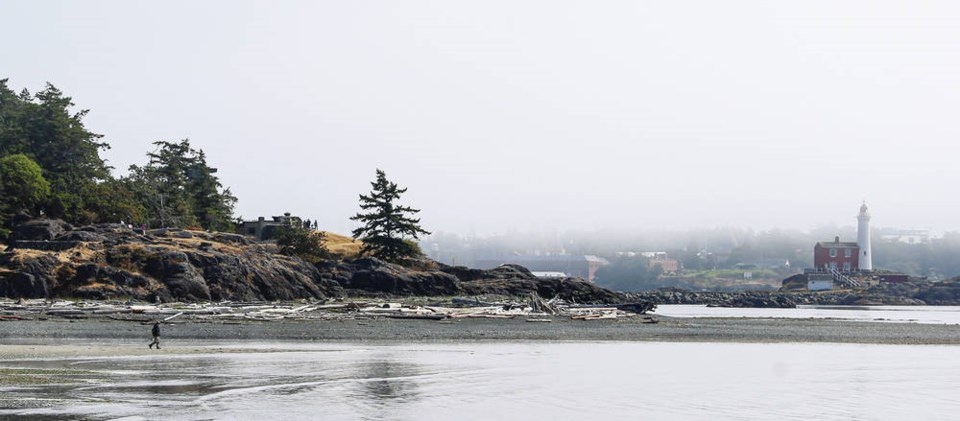Colwood could soon be home to a national park, thanks to a federal plan that is looking at possible sites in six cities across the country.
The federal government is allotting up to $130.9 million toward the effort, with the emphasis on parks in urban centres.
The National Urban Parks Program considers statistics such as 72 per cent of Canadians live in urban centres, where connection to nature and wildlife can be limited.
Colwood Mayor Rob Martin said Parks Canada asked for an indication that there was an appeal among officials. Winnipeg, Halifax, Windsor, Edmonton and Montreal were also contacted.
“The reason they did that was to the ensure the municipality was on board and interested, and supportive of the concept of an urban national park,” Martin said. “And we’re thrilled with the concept and we’ll do whatever we need to on our side to help facilitate that.”
Martin said the idea is “a beautiful fit” to what is happening in Colwood, where there has been a lot of development over the past three years and the focus now is on balancing that.
“The message through COVID has been so strong that your community is where you spend the majority of your time and so you don’t want to just see buildings,” Martin said.
“You want to make sure that you’re creating natural spaces for people.
“This would be game-changing for Colwood if we had a national urban park within our community.”
At present, Colwood has Fort Rodd Hill, a national historic site.
Martin said it is interesting to look at what else a national urban park entails. “The messaging that has been really clear to me is that this is all about active transportation and ensuring that we’re not building national parks where people have to get into their vehicles and drive a long distance to experience it, that this is about creating an urban national park where people have the ability to get on a bicycle or walk or use other active transportation modes to actually experience it.”
Martin said the government realizes the important of consultation in establishing a park with a variety of stakeholders.
“I think before they just come out and say we’re going to do an urban national park they really wanted that engagement to happen first, and then the _election happened,” he said.
He expects the process to pick up after election day on Sept. 20, and that Colwood will have a better idea of what is going on by late September or early October.
Martin said no specific sites have come out so far and he is unsure of how big a park would be, but his thought is that use will be made of federal lands within Colwood that are available right now.
“There are significant lands around Fort Rodd Hill that are owned by [the Department of National Defence], so that could be a location,” he said. “I don’t think it would be Royal Roads because Royal Roads is part of treaty-settlement discussions.”
Martin said he expects a beach area would be included in whatever area is selected.
Along with all of its other positives, the park could bring economic benefits, he said.
“I believe it’s going to be a strong economic driver for us in the years to come,” Martin said.
“It’s not going to be the reason why tourists come, but it’s going to be another reason to come to lower Vancouver Island.”
Giving people an option in the outdoors is “a winner idea,” he said.



